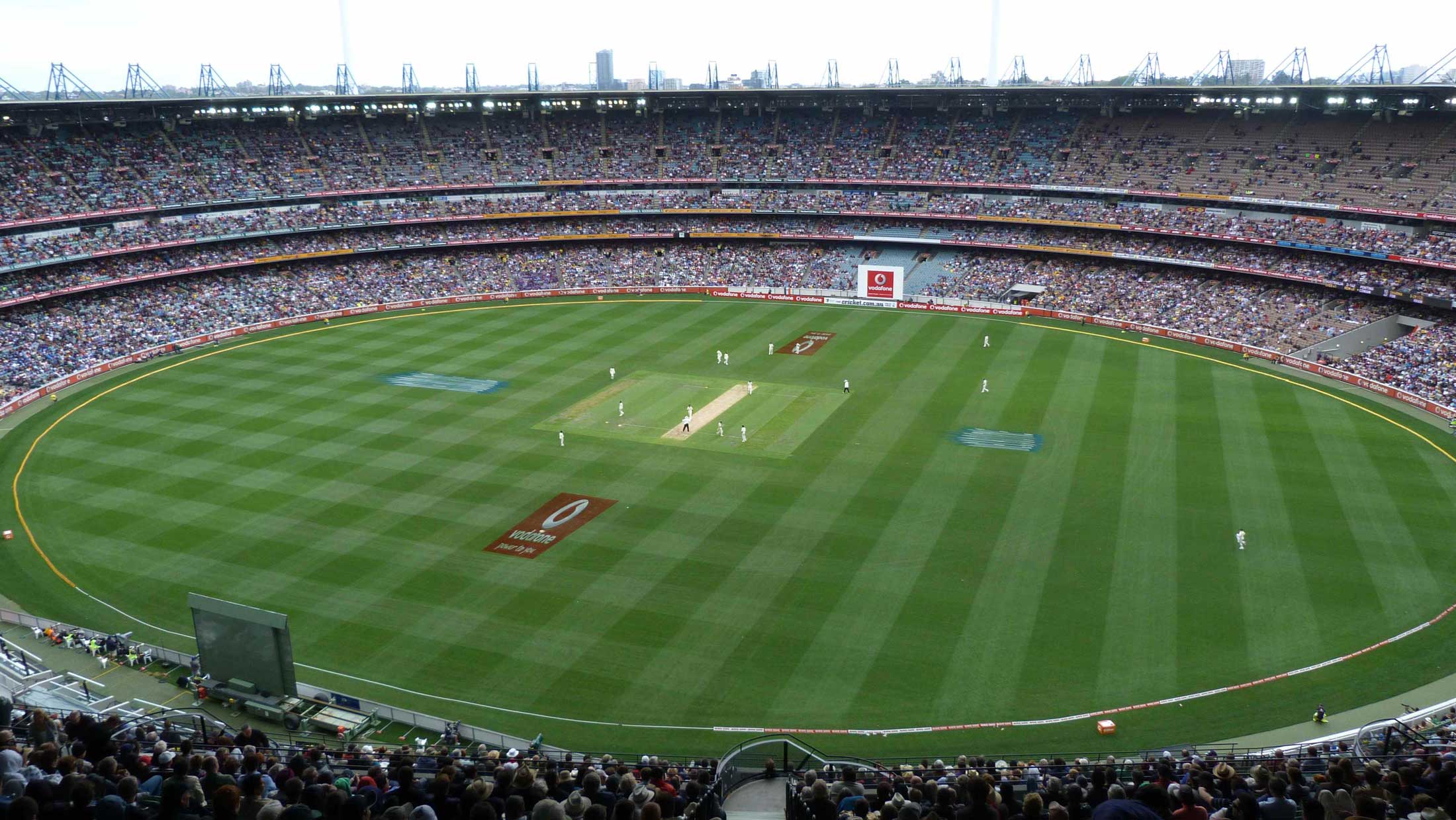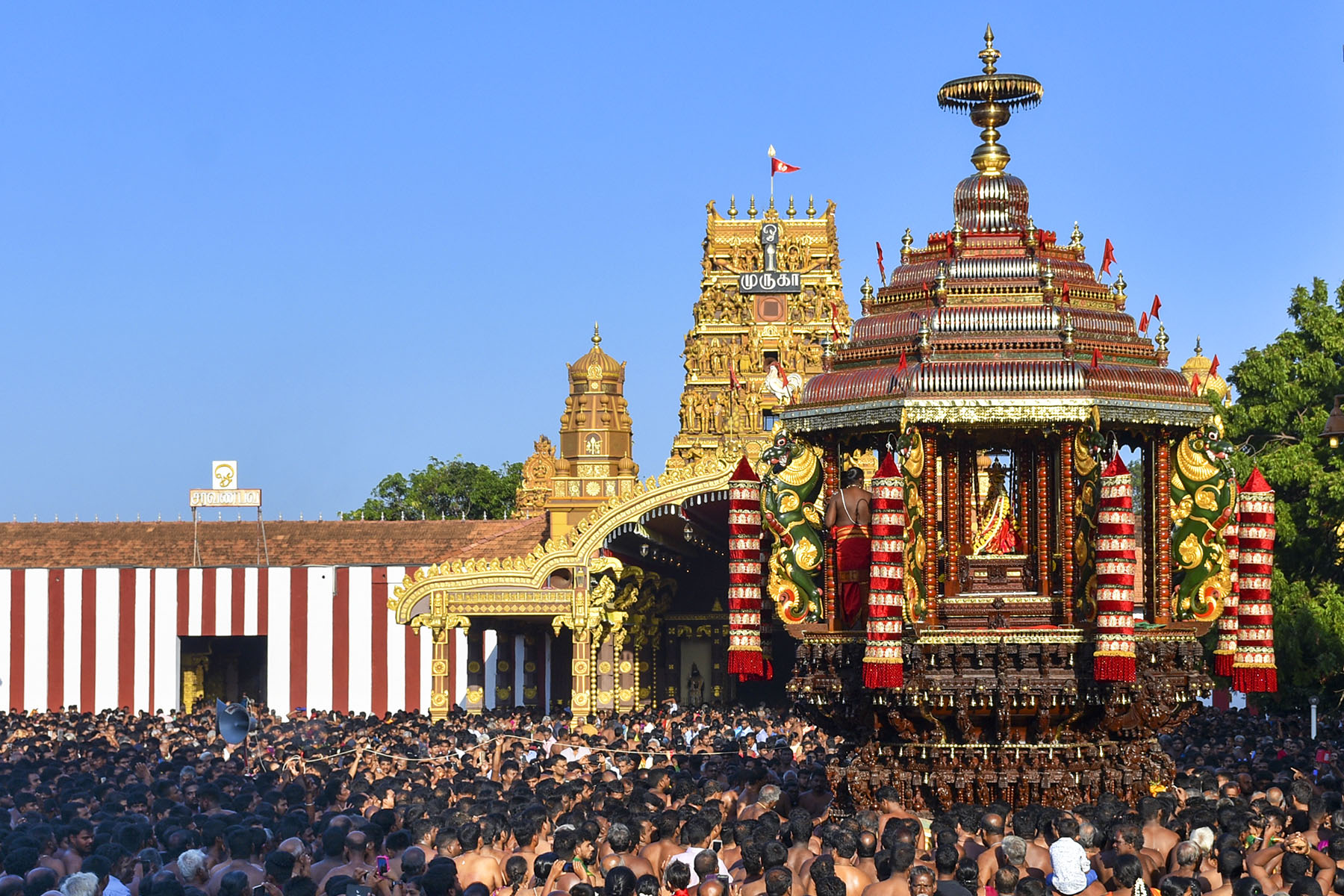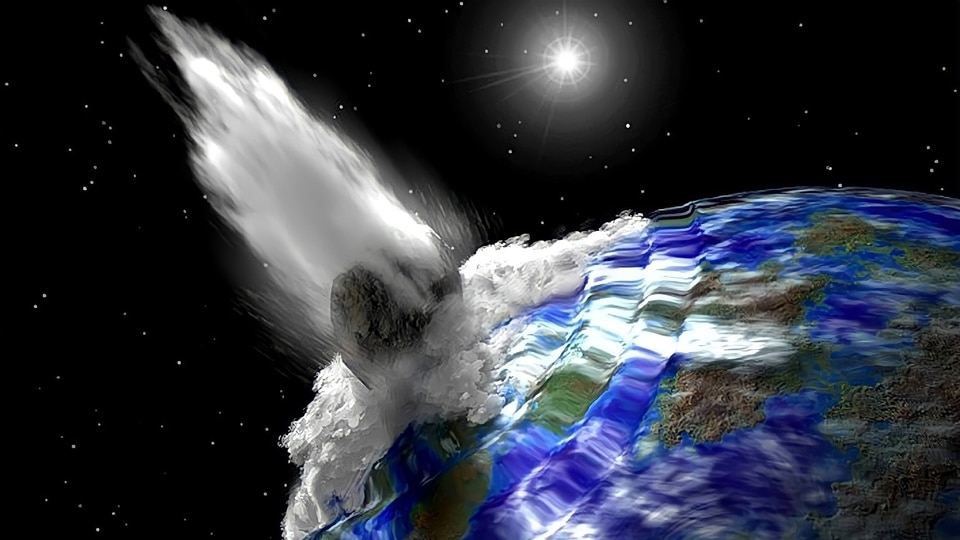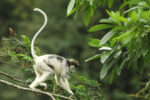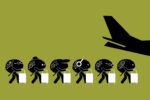SRI LANKAN BUDDHISTS CELEBRATE VESAK EVEN AMIDST DIRE CRISIS
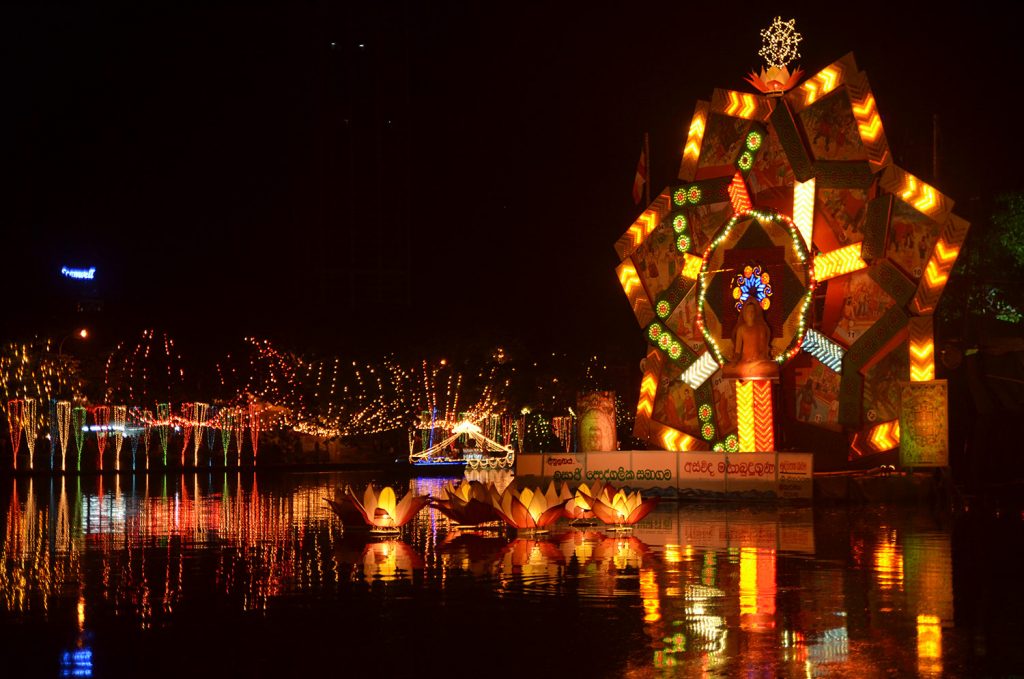
Undeterred by the sky-rocketing cost of living with the continuing shortages of milk-food, fuel, kerosene, gas and some medicine; the ever-lengthening fuel and cooking gas queues; and the inundation of certain areas already with the forecasts of heavy southwest monsoon rains in the days to come, Buddhists in this crisis-ridden South Asian nation have celebrated their sacred Vesak festival that fell on the Full Moon (Poya) day on 15th May, marking the triple event in the life of the Enlightened One.
Vesak that commemorates the Birth, Enlightenment and Death of the Lord Buddha is the most important day on the international Buddhist calendar and on an initiative taken by Sri Lanka it was declared a holiday by the United Nations.
Sri Lanka was unable to celebrate this religious festival in a proper manner for the past three years due to the 2019 Easter Sunday terrorist attacks and the global coronavirus pandemic that hit the county in the ensuing two years.
To help celebrate the festival the government suspended the lengthy power cuts on the Vesak day and the day that followed.
Vesak of this year, however, was scaled down due to political upheaval owing to the economic crisis that had dampened the enthusiasm of the people. Compared to other years, there were fewer dansal (wayside stalls that offer free food and refreshment to passers-by) and thoran (pandals), giant illuminated structures, erected in Colombo and other towns to depict the Jathaka tales (past lives of the Buddha). Fuel and cooking gas shortage, the difficulties in organising events and the possible night curfew were the main reasons for the lower number of dansal and thoran this year. Despite the increased price of coloured tissue papers, elders and children were eager to buy them to make their own Vesak kuudu (Vesak lanterns) that would illuminate their houses at night while others were seen buying such colourful lanterns from wayside vendors to hang in front of their homes to signify the light of the Triple Gem: Buddha, Dhamma and Sangha.
The Buddhist Flag, flying at the homes of Buddhists and public places, is also a common sight during the festive season. The flag, used by Buddhists throughout the world, was originally designed in 1885 by a committee of Sri Lankan Buddhist monks and laymen. Its vertical bands represent blue, yellow, red, white and orange colours of the aura which Buddhists believe emanated from the body of the Buddha when he attained Enlightenment.
The festival of this year focused more on religious ceremonies than on State festivals in the aftermath of a week of civil strife marked with violence, arson, destruction of properties and death, for Vesak has always been an occasion for unity, harmony, joy and happiness in society; a time to reinforce and propagate the message of peace and compassion to all people, as preached by the Buddha.
During the week of Vesak, the selling of alcohol and meat is usually prohibited and slaughter houses are also closed. Alms giving activities are given prominence while private and government organisations sing bhakti gee (Buddhist devotional hymns). Devotees clad in white throng temples throughout the island to make offerings to the Buddha, observe his five precepts, meditate and listen to homilies of monks. Temples echo as the devotees sing gatha (Buddhist chants).
During the festive period, the capital Colombo witnesses at night a massive influx of people from other towns and villages in the country who come in busloads to see pandals with illuminated paintings and mechanically operated multi-coloured lanterns that move around a mother lantern, and to partake of free meals and drinks provided at refreshment stalls. Vesak kalapa or Vesak Zones are also set up to entertain visitors.
Sri Lanka’s role in declaring Vesak as an international public holiday
Although Buddhist festivals have traditions dating back to centuries, the first conference of the World Fellowship of Buddhists (WFB), held in Sri Lanka in 1950, put forward the decision to celebrate Vesak as the Buddha’s birthday across the many Buddhist countries. The WFB was founded in that year in Colombo by Sri Lankan academic and diplomat Gunapala Piyasena Malalasekera (1899-1973), born in Panadura, south of Colombo, who was the then Ceylon’s first ambassador to the Soviet Union, Ceylon’s High Commissioner to Canada and the United Kingdom and Ceylon’s Permanent Representative to the United Nations (UN) in New York. He was the Professor Emeritus in Pali and Dean of the Faculty of Oriental Studies.
Acting on a proposal to declare Vesak as an international public holiday, which was tabled at the UN General Assembly by Lakshman Kadirgamar (1932-2005), a distinguished Sri Lankan statesman and the foreign minister (1994-2001) of the then government of Sri Lanka who was assassinated in Colombo by an LTTE sniper, the UN adopted on 15th December 1999, resolution 54/115, internationally recognising the Day of Vesak as a public holiday at UN Headquarters and other UN offices around the world. The first international Vesak celebration was held in the UN in New York on 15th May 2000 with the participation of 34 countries.
UN Secretary-General António Guterres in his Vesak message for Buddhists around the world, reminded that this year Vesak arrived at a moment of multiplying crises: an unequal recovery from COVID-19, the punishing effects of climate change, conflicts, divisions and violence. “Each crisis reminds us of how far we have fallen away from Lord Buddha’s timeless teachings”, he said, urging people to honour Buddha’s wisdom by coming together as one, in solidarity, and shaping a better, more peaceful world for all people. Guterres, a Portuguese politician and diplomat, who assumed office in 2017, served as Prime Minister of Portugal from 1995 to 2002.
Meanwhile, the UN Resident Coordinator Hanaa Singer-Hamdy in a press release assured that the United Nations stands with Sri Lanka and she admired the resilience shown by its people, and expressed hope of a peaceful recovery from the current crisis. ***
